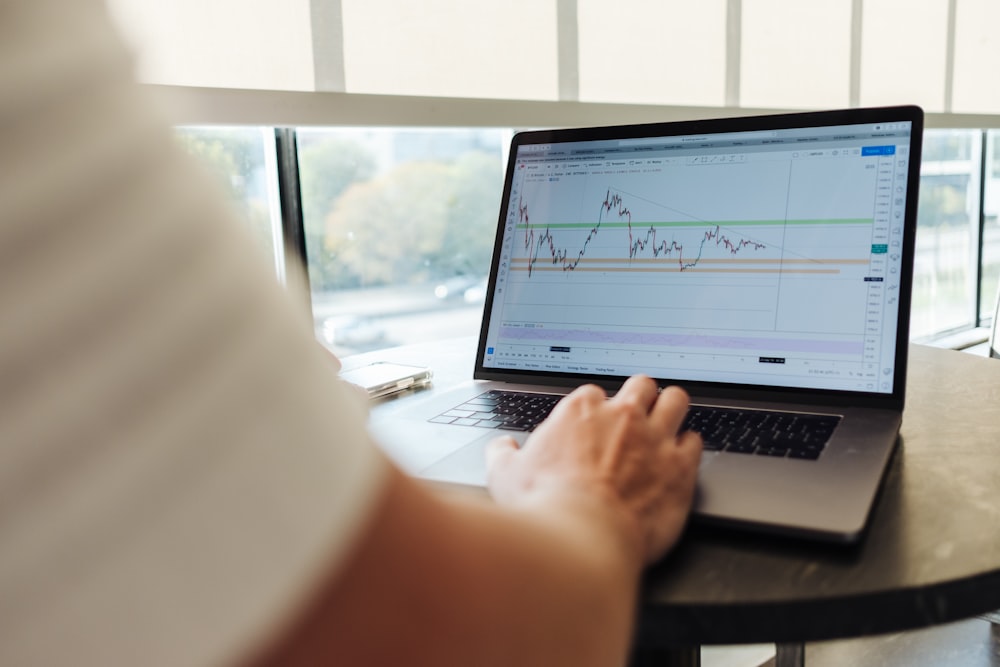Asia Markets Mixed As Trump Proposes Tariffs On Key Industries, New Zealand Cuts Rates
Image Source: Unsplash
- Japan’s Nikkei 225 declined 0.38%, while the broader Topix index slipped 0.31%.
- South Korea’s Kospi surged 1.83%, while the Kosdaq added 0.62%, supported by gains in chipmakers.
- In China, the CSI 300 index rose 0.42% in choppy trade, while Hong Kong’s Hang Seng index edged down 0.33%.
Asian markets traded mixed on Wednesday as investors reacted to US President Donald Trump’s proposal to impose 25% tariffs on imports of autos, semiconductors, and pharmaceutical goods.
Concerns over trade tensions weighed on sentiment, while policy moves in New Zealand and Australia influenced regional markets.
Meanwhile, Chinese economic data and corporate earnings reports from major banks and tech firms added to market volatility.
Asian markets react to trade tensions and economic data
Japan’s Nikkei 225 declined 0.38%, while the broader Topix index slipped 0.31%, as a widening trade deficit weighed on investor sentiment.
However, the latest Reuters Tankan poll showed improving business sentiment among Japanese manufacturers, with the index rising to +3, the highest level since November.
South Korea’s Kospi surged 1.83%, while the Kosdaq added 0.62%, supported by gains in chipmakers.
In China, the CSI 300 index rose 0.42% in choppy trade, while Hong Kong’s Hang Seng index edged down 0.33%.
In India, stocks rebounded, with the Nifty 50 gaining 0.21% and the BSE Sensex rising 0.38%, snapping a recent losing streak.
Australia’s S&P/ASX 200 fell 0.73% to 8,419.20, a day after the Reserve Bank of Australia (RBA) cut interest rates by 25 basis points to 4.10%, marking its first rate cut since November 2020.
New Zealand cuts rates again as economy slows
The Reserve Bank of New Zealand (RBNZ) slashed interest rates by 50 basis points to 3.75%, marking its fourth consecutive rate cut.
The move was widely expected, as inflation continues to ease and economic growth slows.
The New Zealand dollar weakened 0.33% to $0.5719 against the US dollar following the announcement.
New Zealand’s inflation rate stood at 2.2% in Q4 2024, with price growth slowing for seven of the last eight quarters, according to LSEG data.
Wall Street sets new records as energy stocks lead gains
Overnight, U.S. markets ended higher, with the S&P 500 closing at a record 6,129.58, after briefly touching an intraday high of 6,129.63.
The Nasdaq Composite added 0.07% to 20,041.26, while the Dow Jones Industrial Average edged up 10 points to 44,556.34.
The energy sector was the best-performing segment in the S&P 500, rising 1.9%, while tech stocks also saw gains.
Samsung, SK Hynix gain on South Korea’s chip tax credit boost
Shares of Samsung Electronics and SK Hynix climbed 3.16% and 4.29%, respectively, after reports indicated that South Korea’s K-Chips Act could raise investment tax credit rates for semiconductor firms.
The tax credit for large- and medium-sized enterprises is expected to increase from 15% to 20%, while small- and medium-sized firms may see their rate rise from 25% to 30%, according to Business Korea.
Samsung is expected to benefit significantly as it continues developing its NRD-K R&D complex at its Giheung Campus.
HSBC announces $2 billion share buyback as profits rise
Europe’s largest lender, HSBC, announced a $2 billion share buyback after reporting a 6.5% rise in annual pre-tax profit, driven by the sale of its Canadian banking business.
The bank’s full-year revenue came in at $65.85 billion, slightly lower than the $66.1 billion recorded in 2023.
Q4 profit before tax nearly doubled to $2.3 billion, as last year’s $3 billion impairment charge no longer weighed on results.
HSBC expects to complete the share buyback by the end of Q1 2025.
The bank also announced plans to cut costs by $1.5 billion annually by the end of 2026.
National Australia Bank falls 8% on weak earnings
Shares of National Australia Bank (NAB) dropped 8.63% after reporting weaker-than-expected first-quarter earnings.
The lender’s cash earnings for the three months ending December 31 fell to AU$1.74 billion ($1.11 billion), a 2% decline compared to the previous quarter.
NAB’s performance was hit by lower margins and rising credit impairments, as more borrowers struggled to meet repayments.
China’s property sector still weak
China’s new home prices fell 5% year-on-year in January, slightly better than the 5.3% decline in December.
However, prices remained unchanged month-on-month, signaling that the country’s prolonged real estate downturn is far from over.
More By This Author:
Canada’s Inflation Rises To 1.9%, Driven By Soaring Energy PricesXRP Open Interest Rebounds: Will It Fuel A Continued Price Surge?
Litecoin Price Swings Sees Traders Swoop In For Opportunity
Disclosure: Invezz is a place where people can find reliable, unbiased information about finance, trading, and investing – but we do not offer financial advice and users should always ...
more



